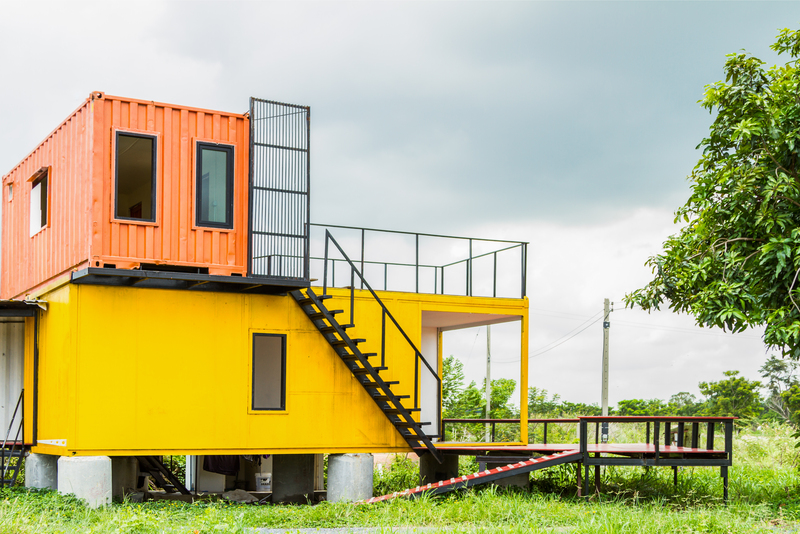Skip Hire Anticipations
Posted on 21/07/2024
When it comes to managing waste, especially for larger projects like home renovations or construction sites, skip hire is often the most efficient solution. However, there are several factors you should consider to ensure a smooth experience. This article delves into what you can anticipate when hiring a skip, its pros and cons, valuable tips, and essential takeaways for an efficient waste disposal process.
Understanding Your Skip Hire Needs
The first step in skip hire is understanding your needs. Are you clearing out a garage, renovating your home, or managing a construction site? The type of project you're undertaking will significantly influence the size and type of skip you require. Skips come in various sizes, from small mini skips for minor household cleanouts to larger roll-on roll-off skips for major commercial projects.

Booking and Delivery
Once you've identified your needs, the next step is booking. It's advisable to book your skip hire in advance to ensure availability, especially during busy periods such as spring and summer. Most companies offer online booking services, which are both convenient and fast. Once booked, a professional team will deliver the skip to your specified location. Make sure to choose a delivery spot with ample space for the skip and where it won't obstruct any driveways or roads.
Licensing and Permits
If you plan to place the skip on public property, such as on the street, you'll most likely need a permit from your local council. Permits can often take several days to process, so it's crucial to factor this into your planning. Most skip hire companies can assist you in obtaining the necessary permits, but it's always good to double-check.
Loading Your Skip
When it comes to loading your skip, it's essential to do it efficiently to make the most of the space. Larger, bulkier items should be placed at the bottom with lighter, smaller items on top. Ensure that the load is evenly distributed to avoid any safety hazards. Moreover, be aware that certain items are prohibited from skips, such as hazardous waste, electrical appliances, and tires. Always check with your skip provider for a complete list of restricted items.
Collection and Recycling
After you're done loading the skip, you simply need to contact the hire company to arrange for collection. One of the significant benefits of using a reputable skip hire service is the assurance that your waste will be disposed of responsibly. Many companies have systems in place to recycle a large portion of the waste collected, helping you reduce your environmental footprint.
Pros and Cons of Skip Hire
Pros
- Convenience: Skips offer a convenient way to dispose of large amounts of waste without multiple trips to the local dump.
- Efficiency: Ideal for large projects, skips can handle a substantial volume of waste.
- Environmental Responsibility: Reputable skip hire services are committed to recycling, ensuring that your waste is managed responsibly.
- Variety of Sizes: A range of skip sizes are available to accommodate different project needs.
Cons
- Cost: Skip hire can be expensive, particularly for larger skips or extended hire periods.
- Space Requirements: You need sufficient space to place the skip without causing obstructions.
- Regulations: Obtaining permits for public placement can be time-consuming, adding to your planning efforts.
- Restricted Items: Certain materials cannot be disposed of in skips, necessitating alternative disposal methods.
Tips for a Smooth Skip Hire Experience
- Plan Ahead: Book your skip in advance, especially during peak seasons, to ensure availability.
- Choose the Right Size: Analyze the amount of waste you expect to generate to select the appropriate skip size.
- Know What You Can Dispose Of: Familiarize yourself with the list of prohibited items to avoid complications.
- Optimize Space: Load the skip efficiently, placing larger items first and filling gaps with smaller items.
- Secure Necessary Permits: If placing the skip on public property, ensure you have the required permits well in advance.

Key Takeaways
- Identification: Assess your specific needs and choose the appropriate skip size.
- Booking: Reserve your skip early to avoid unavailability.
- Permits: Allow sufficient time to secure any necessary permits.
- Loading: Load your skip effectively to maximize its capacity and ensure safety.
- Collection: Arrange timely collection to keep your project on track.
Conclusion
Skip hire can be a highly effective waste management solution, especially for larger projects. By understanding your needs, securing the necessary permits, and loading the skip efficiently, you can ensure a smooth and hassle-free experience. While there are some considerations, such as cost and space requirements, the convenience and efficiency often outweigh these drawbacks. With the right planning and a reputable skip hire service, managing your waste can become a straightforward task.
Latest Posts
Planet-Friendly Disposal Strategies
House Waste Removal Made Easy: Top 5 Tools
Hard Rubbish: Identification & Disposal Tips





